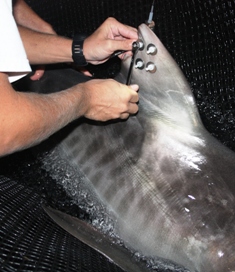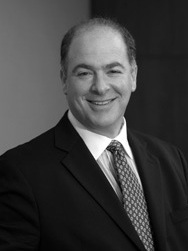Archive for December, 2010

UK Granma is world’s oldest face book user
 (Orange News): A 103-year-old grandmother is believed to be the world’s oldest Facebook user. Lillian Lowe, from Tenby in Pembrokeshire, regularly keeps her online friends updated about her life using her iPad. And being signed up to the social network also enables her to keep track of what her seven grandchildren and 13 great-grandchildren are up to. Lowe, who is just two months away from her 104th birthday, took the oldest Facebook user title following the deathof 104-year-old Ivy Bean in July.Despite some of the Facebook goings on that would shock many her age, Lillian says she isn’t fazed by any of her grandchildren’s "antics".
(Orange News): A 103-year-old grandmother is believed to be the world’s oldest Facebook user. Lillian Lowe, from Tenby in Pembrokeshire, regularly keeps her online friends updated about her life using her iPad. And being signed up to the social network also enables her to keep track of what her seven grandchildren and 13 great-grandchildren are up to. Lowe, who is just two months away from her 104th birthday, took the oldest Facebook user title following the deathof 104-year-old Ivy Bean in July.Despite some of the Facebook goings on that would shock many her age, Lillian says she isn’t fazed by any of her grandchildren’s "antics".

Tagged tiger sharks to reveal travels
 (CNS): Scientists will be following the travels of two tiger sharks tagged in local waters recently, with the hope of learning a bit more about these marine predators and assist in their conservation. Marine biologists working with the Department of Environment caught and tagged the sharks last week fitting each with two types of high-tech electronic tracking devices. The sharks, a ten feet female called Tina and a seven feet younger, immature female Luiza,will help the researchers understand their species’ migration patterns, movements and behaviour. Sharks are becoming increasingly endangered and scientists are in a race against time to protect them.
(CNS): Scientists will be following the travels of two tiger sharks tagged in local waters recently, with the hope of learning a bit more about these marine predators and assist in their conservation. Marine biologists working with the Department of Environment caught and tagged the sharks last week fitting each with two types of high-tech electronic tracking devices. The sharks, a ten feet female called Tina and a seven feet younger, immature female Luiza,will help the researchers understand their species’ migration patterns, movements and behaviour. Sharks are becoming increasingly endangered and scientists are in a race against time to protect them.
The technology used to track the sharks is expected to give more details on the life of the species. One type of tracking de vice being used is a satellite tag that includes a GPS receiver and transmitter, and signals via satellite the location of the shark. The other type is a small acoustic tag or pinger that transmits a signal that can be detected by a permanent or hand held receiver, so showing that the animal is near. The acoustic tags (pingers) can be used to detect movements on a finer scale, providing a more detailed picture of the behaviour and movement of the tiger sharks while they are in Cayman.
“Both of them seem to being doing fine. Tina has reported in several times a day while moving around the island; she seems to be deep during the day, coming into shallower water at night to look for the stingrays and turtles on which these species normally feed,” said lead researcher Dr. Mauvis Gore. “Tiger sharks like many other species are increasingly endangered, as a result of intense overfishing globally. In fact large shark species are becoming so scarce globally that in many countries they are either fully protected, or else their fishing quotas have been reduced to zero.”
Only in the last few years have scientists discovered that tiger sharks can make extensive annual migrations between countries or even across oceans. The tracks revealed by the satellite tags results will show whether the tiger sharks that are sometimes observed in the Cayman Islands move around or between the islands, and whether, as suspected, they are here for only part of the year, and then migrate elsewhere.
International efforts to protect dwindling shark populations have come to the fore in the last few years because of the dramatic crash in shark populations that has taken place globally. Unlike bony fish, sharks mature very slowly and reproduce only once every one to two years, producing only a small number of pups. Yet over the last decade or two 70 million sharks per year have been fished and killed, almost entirely for their fins that are in demand as a component of sharks’ fin soup.
“Even if we agree to exploit sharks,” said Dr. Gore. “We want to do it sustainably, not in this crazy way that will see the resource completely destroyed in another 10 years. As it is, sharks are now far more valuable in the sea, than in the fishing boat. Divers will pay good money to dive in places where they have a chance of seeing such iconic wildlife, and the same sharks can be seen over and over again – whereas once it’s dead that’s it, and it fetches very little in the market.”
Local artist, Guy Harvey, whose Ocean Foundation provided the satellite tags, and who helped the team catch Luiza said tiger sharks are one of his favourite animals.
“They are the most handsome of all the sharks, and I just love painting them. It’s just unfortunate they have these stripes that give rise to their name, making people think they are much more dangerous than they really are.”
Harvey has also assisted with tagging of tiger sharks in Bermuda and the Bahamas.
The tiger shark study is part of a project that is being undertaken by a team from Marine Conservation International led by Dr. Gore.
The project is funded by UK Overseas Territories Environment Programme (OTEP) together with the Cayman Islands Department of Environment, the Save Our Seas Foundation, and the Guy Harvey Ocean Foundation. The team have been working in the Cayman Islands over the past year and a half to assess the species and abundance of species of both sharks and rays as well as whales and dolphins.
“We are very pleased with the preliminary results of this work,” stated Gina Ebanks-Petrie, Director of the DoE, “It is our duty to manage our marine environment in the best interests of the people of the islands; it makes sense to find ways of managing our resources so they benefit us in the long-term, not destroy them; and we also have international obligations to protect these threatened species.”
Sharks, because of media “hype” and their “Jaws” image, often cause public concern. But shark attacks on man are in fact very rare, typically causing only 4 – 6 fatalities throughout the whole world per year.
The resident project officer Oliver Dubock explained that people’s fear of sharks was greatly exaggerated. “Of course they can be dangerous,” he said, “but no more than fierce dogs. You need to know how to behave and how to handle them. Just as an example, in Florida on average over 70 people per year die from boating accidents, but less than one every two years as a result of shark attack.”
Tim Austin, Deputy-Director at the DoE, added, “We plan to keep people informed about the behaviour of Tina and Luiza. We hope to be able to keep the press updated with maps of their migrations. Of course it is essential that they are not harmed. All past experience has shown that killing local tiger sharks does not get rid of them; others simply come in from elsewhere. We urge fishermen and divers to join this important conservation effort and help look after these two beautiful animals.”
According to surveys, less than 10 percent of the world’s shark populations remain and the decline is continuing. “This is extremely worrying as sharks are key components of marine biodiversity,” Gore said.
While they are here the scientist will also be collecting data on other shark species, dolphins and whales to help protect this often undervalued resource in local waters.
“Our only hope to save the ocean’s iconic species is to gather information to develop conservation plans that will safeguard their future. This in turn could translate into sustainable economic benefits for local tour operators, dive companies and sports fisherman,” Dr. Gore added.
The research project will run until April 2012 and scientists are encouraging residents to help in the understanding of Cayman’s seas by reporting any shark, whale or dolphin sightings to the DOE at DOE@GOV.KY or 949-8469.
Scott heads for the golf course
(CNS): Cayman First has announced that President & CEO Danny Scott, a long time leader in the Cayman Islands’ insurance industry is retiring after more than twenty five years with the firm. His association with the company dates back to its inception in 1984 as Cayman General up to the most recent rebranding to Cayman First following the acquisition by Bahamas First Holdings Limited. Scott will officially retire on 31 December after more than four decades in the Insurance Industry. Michael Gayle who has served as Cayman First’s Senior Vice President for the past three and a half years, has been appointed the new General Manager.
Scott is the former President of the Cayman Islands Insurance Association (CIIA); Past Director of the Insurance Association of the Caribbean (IAC) and serves on several boards including the Cayman Islands Business Staffing Plan Board of which he is currently Chairman.
He was also the Chairman of the Board of Governors for the Community College of the Cayman Islands which became the University College of the Cayman Islands under his chairmanship. Scott will also continue to serve as Deputy Chairman of the Board of Cayman First.
Since Sagicor General Insurance was acquired by Bahamas First in June this year Scott and his senior management team have focused on ensuring a smooth transition for the company’s valued customers and staff and introducing the new Cayman First Insurance Company Limited brand to the market.
“I feel a great sense of accomplishment that the Bahamas First acquisition and the implementation of the new Cayman First brand were both executed seamlessly,” remarked Scott. “I believe it’s now time to take the company to a new level and it is with great confidence that I hand over the reins of Cayman First as a financially strong, stable and customer centric company to my colleague Michael Gayle who has contributed considerably to the leadership team. After so many years in the insurance industry here in Cayman, I am looking forward to retiring and improving my golf handicap.”
Gayle who will step into Scott’s boots is a seasoned insurance veteran with more than 30 years of regional industry experience, including the negotiation of key reinsurance arrangements. An invited guest speaker at a number of International conferences Gayle has been a guest lecturer on various insurance topics at the University of the West Indies (UWI) and the University of Technology (UTech) in Jamaica, and has lectured students both in Jamaica and in Cayman, who are preparing for their professional insurance examinations He is a past Director of the Insurance Institute of Jamaica, a former President of the Cayman Islands Insurance Association and currently serves as its Vice President.
“Danny has been a guiding light for the company for many years” said Gayle. “His experience, business acumen and, not to mention, his legendary humour shall be greatly missed by management, staff and customers alike.”
“I look forward to the challenge of leading the management team at Cayman First and I am very excited and positive about our future,” he said. “We are committed to remaining at the forefront of the Cayman insurance market by providing our customers with high quality products and exceptional service. The year ahead will see us step up this commitment as we continue to enhance our internal systems to deliver market responsive products to our clients and to support our broker partners.”

UK court clears up legal queries in hedge fund sector
 (CNS): A decision by the Privy Council has according to local lawyers clarified some sticky issues for the hedge fund industry created by a court of appeal decision. Following the ruling by the UK’s top court earlier this month on the case of Culross Global SPC Limited v Strategic Turnaround Master Partnership Limited the Fund Administrators Association said it had cleared up a difficulty for the sector. Campbells who represented Curloss added that the long road was worth it as the judgment cleared up both the uncertainty and sent a warning message to the industry to ensure that the rights and obligations of investors and the fund are properly set out.
(CNS): A decision by the Privy Council has according to local lawyers clarified some sticky issues for the hedge fund industry created by a court of appeal decision. Following the ruling by the UK’s top court earlier this month on the case of Culross Global SPC Limited v Strategic Turnaround Master Partnership Limited the Fund Administrators Association said it had cleared up a difficulty for the sector. Campbells who represented Curloss added that the long road was worth it as the judgment cleared up both the uncertainty and sent a warning message to the industry to ensure that the rights and obligations of investors and the fund are properly set out.
On 13 December In a decision which will be welcomed by most if not all of the hedge fund industry, the Privy Council overturned and clarified certain controversial issues arising from the widely publicised earlier decision of the Cayman Islands Court of Appeal.
John Lawless, a member of the Executive Committee of the Cayman Islands Fund Administrators Association explained the difficult from the Court of Appeal’s decision. "The finding of the Court of Appeal and the Grand Court that a redeeming investor such as Culross could simultaneously be a creditor of the fund for the redemption proceeds and still be the holder of the shares which he had applied to redeem had caused considerable difficulty for fund administrators as this was totally inconsistent with global operational best practice so this is a most welcome clarification of the position of investors who have applied to redeem their shares," he said.
The facts of the case were that Culross had subscribed for shares in STMP, a feeder fund registered in the Cayman Islands in a typical master/feeder fund structure. In October 2007, Culross gave notice to redeem all of its shares. STMP confirmed that Culross’s redemption request had been accepted and approved and that Culross would be paid 90% of the redemption proceeds within 30 days after the agreed redemption date of 31 March 2008. Then, on 17 and 22 April 2008, STMP’s board resolved tosuspend the calculation of NAV and the redemption and issue of shares. STMP proceeded to calculate its NAV for the redemption date of 31 March 2008 and on 14 May 2008 Culross was notified of the redemption price applicable to the redemption of its shares as at 31 March 2008. Despite this, STMP subsequently refused to pay any part of the redemption price to Culross. It initially asserted that this was because the effect of the suspensions declared on 17 and 22 April 2008 was to defer STMP’s obligation to pay the redemption price to Culross, such that the agreed price was not presently due and payable. Subsequently that position shifted somewhat, in that STMP asserted that under the terms of its Articles of Association the effect of the suspension was that Culross would only be entitled to be paid a redemption price calculated at the NAV applicable on the redemption date next following the lifting of the suspension.
Culross presented a Petition to wind up STMP in June 2008 which STMP immediately applied to strike out. Its application was refused by the Grand Court of the Cayman Islands and STMP appealed to the Court of Appeal. In its judgement delivered in December 2008, the Court of Appeal held that STMP had a power to suspend the payment of redemption proceeds after the redemption date, but before payment of those proceeds, that STMP had exercised that power by its resolutions passed on 17 and 22 April 2008, and that this had the effect of making Culross only a prospective creditor. Although it did not strike out the Petition (it allowed it to proceed on an alternative just and equitable ground), the Court of Appeal’s finding meant that Culross did not have the status of an actual creditor owed a debt which was presently due and payable. As such, Culross could not seek a winding up order on the ground that STMP’s failure to pay the agreed redemption price demonstrated its inability to pay its debts. Culross was granted leave to appeal by the Privy Council, having earlier been refused such leave by the Court of Appeal. The appeal was heard in November 2010.
The most controversial aspect of the Court of Appeal’s decision related to its findings that redemption was a process which was not completed until the fund had paid the redemption proceeds and removed the name of the redeeming investor from the register of members, and that until that process was complete, the redeeming investor would be both a creditor and a member of the company. The Court of Appeal had drawn support for that conclusion from a series of 19th-century cases before the English courts concerning the rights of members seeking to withdraw from building societies. The Privy Council found no support in any of the 19th-century cases for the proposition contended for by STMP and accepted the submission by Culross that the redemption of the shares had occurred on the agreed redemption date, and that from that time Culross was simply a creditor of STMP until paid its redemption proceeds.
The case also raised an interesting issue in relation to the position where there is a divergence between the wording of a company’s Articles of Association and its offering documents. In this case, the Confidential Explanatory Memorandum (“the CEM”) issued by STMP made reference to a power to suspend payment of redemption proceeds. Although STMP’s Articles of Association contained detailed provisions dealing with STMP’s power to suspend the calculation of NAV and the redemption and issue of shares, there was no express reference in the Articles to a power to suspend payment of redemption proceeds.
The Court of Appeal had held that the power referred to in the CEM had been incorporated into the Articles by virtue of Article 17. Article 17 expressly provided that, subject to the Articles, shares would be “issued” on the terms referred to in the CEM. The Court of Appeal took the view that this wording was sufficient to incorporate into the statutory contract embodied bythe Articles any term of the CEM relating to redemptions of shares because, on the Court of Appeal’s reasoning, the terms on which shares are issued would include the terms on which they might be redeemed. It therefore held that the power to suspend payment of redemption proceeds referred to in the CEM had been incorporated into the Articles and was a power which could be and had been utilised by STMP to withhold payment of the redemption proceeds to Culross.
The Privy Council however held that the true meaning of Article 17 was that only those terms of the CEM which identified the terms of subscription of shares, in particular as regards timing, numbers, par value and price could be said to be incorporated into the statutory contract. The provisions of the CEM which referred to redemptions and the suspension of redemptions were merely (and purportedly) descriptive of the effect of STMP’s Articles, and as there was in fact no power to suspend the payment of redemption proceeds (as distinct from a power to suspend redemptions) referred to in the Articles, the reference to such a power in the CEM mis-described STMP’s powers of suspension and was of no legal effect as against investors such as Culross.
The Privy Council was not willing to allow STMP to rely on its own mis-description of its own Articles against its investors and accordingly held that STMP had no power to suspend the payment of redemption proceeds to an investor after the redemption of that investor’s shares had occurred. It therefore found that Culross was an actual creditor for the redemption price and should be at liberty to petition for STMP’s winding up on the basis that its failure to pay that price demonstrated STMP’s inability to pay its debts.
Ross McDonough and Guy Manning of the Cayman Islands law firm of Campbells, acted for Culross. McDonough observed:
“It was a long hard road that we had to travel to get there, but it is gratifying to see that the view that we and our client always took of its case has prevailed. The Privy Council’s decision is helpful in a number of respects and clarifies major areas of uncertainty which had been created in the fund industry by the Court of Appeal’s judgment. It also sends a warning message to those drafting funds’ constitutional documents to ensure that the rights and obligations of investors and the fund are properly set out in the appropriate documents. In particular, practitioners will have to ensure that any power in relation to redemption of shares, including powers to suspend redemption, are fully and properly set out in the fund’s Articles of Association. It also seems from the Privy Council’s judgment that in the event of any conflict between the provisions of the Articles and the fund’s offering documents, the provisions of the Articles are highly likely to prevail.”
For more information on this release contact Ross McDonough at rmcdonough@campbells.com.ky or Guy Manning at gmanning@campbells.com.ky.
For more information on Campbells please visit www.campbells.com.

New auditor licensed for local fund sector
 (CNS): Citrin Cooperman, an accounting and business consulting firm, has been granted a license to transact business as an approved auditor in the Cayman Islands and will be offering offshore-based funds auditing services under the Citrin Cooperman (Cayman) name. The firm says it is now able to offer auditing services to Cayman investment advisors. “Our presence in the hedge fund area has grown substantially over the last several years, and this was a natural expansion of our services,” said Dave Grumer, co-partner in charge of the firm’s Financial Industry Group.
(CNS): Citrin Cooperman, an accounting and business consulting firm, has been granted a license to transact business as an approved auditor in the Cayman Islands and will be offering offshore-based funds auditing services under the Citrin Cooperman (Cayman) name. The firm says it is now able to offer auditing services to Cayman investment advisors. “Our presence in the hedge fund area has grown substantially over the last several years, and this was a natural expansion of our services,” said Dave Grumer, co-partner in charge of the firm’s Financial Industry Group.
“With Citrin Cooperman (Cayman) we can now accommodate our current set of hedge fund clients who themselves have become more active offshore,” he added.
With approval by the Cayman Island Monetary Authority (CIMA), the financial regulatory agency of the Cayman Islands, Citrin Cooperman will also be able to audit registered investment advisors and other similar entities that are established in the Cayman Island jurisdiction, according to Bob Kaufmann, co-partner in charge of the firm’s Financial Industry Group.
The establishment of Citrin Cooperman (Cayman) allows the Financial Industry Group to expand its reach to a growing number of Cayman Islands-based funds and advisors seeking audit and attest services.
Citrin Cooperman’s set of longstanding clients served by its Financial Industry Group includes broker/dealers, investment partnerships, and registered investment advisors. The financial services professionals at Citrin Cooperman combine decades of technical expertise to help these firms set up business structures for broker/dealers, incubate hedge funds, and consult with RIAs on regulations, reporting, and tax treatments.

Carrington says UK should restore Turks democracy
 (CNS): The outgoing Secretary-General of CARICOM has called on the United Kingdom to restore constitutional government in the Turks and Caicos Islands. Edwin Carrington, who stepped down from the role this week said the UK’s imposition of indefinite direct rule was “totally at odds with the development of good governance, including improved fiscal and administrative management, in the Turks and Caicos Islands.” Carrington added that the UK’s objectives for the associate member of Caricom could not be met with the “disenfranchisement” of the TCI people or by the “denial of their inalienable right to shape their own future.”
(CNS): The outgoing Secretary-General of CARICOM has called on the United Kingdom to restore constitutional government in the Turks and Caicos Islands. Edwin Carrington, who stepped down from the role this week said the UK’s imposition of indefinite direct rule was “totally at odds with the development of good governance, including improved fiscal and administrative management, in the Turks and Caicos Islands.” Carrington added that the UK’s objectives for the associate member of Caricom could not be met with the “disenfranchisement” of the TCI people or by the “denial of their inalienable right to shape their own future.”
For this reason, he said that CARICOM looked forward to the restoration by the UK’s new administrationof the “islanders’ full franchise.”
The former Secretary-General of the regional body said the Caricom community and the UK had benefited over the years, from frank and open dialogue and had co-operated constructively in defence of common values such as good governance, democracy; respect for the rule of law and for the basic, inalienable rights of all peoples.
“We must strive to remain guardians of these all too fragile and important tenets of modern civilization. It is in all of our interests,” Edwin said in a release from the Caricom HQ.
H said that the 7th meeting of the CARICOM-UK Forum which will be held in 2011 in Grenada, the first with the UK’s Foreign Secretary William Hague would be a fruitful opportunity for the strengthening of UK-Caribbean relations.

Cayman Turtle Farm speaks
The Cayman Turtle Farm appears to elicit an emotional response whenever anyone discusses it. Recent posts on CNS in response to a story about our November turtle release are an example of this. Some of the comments suggest a lack of understanding of what actually occurs at the farm. The Turtle Farm represents both a unique wildlife-conservation project and a commercial-breeding enterprise.
Housed, in a sense, under the same roof, the two functions at times appear contradictory, which is precisely where the controversy usually arises. From the farm’s inception however, the philosophy of “conservation through commercialisation” has been both inherent and explicit.
An analogy may help illustrate the logic: Consider the reaction should chicken farms suddenly vanish. Farming fowl for meat and eggs is widely accepted, and has been for thousands of years. An enormous source of protein in human diets would be severely curtailed if chicken meat and eggs were no longer produced.
The fundamental difference is the acceptability of farming chickens for food as opposed to farming turtles for food. The differences in acceptability, however, are mostly chronological and geopolitical: Chickens have been domesticated and farmed for thousands of years across global cultures; farming of sea turtles only started four decades ago — and only in one place: Grand Cayman.
We might point to another, perhaps closer, analogy: buffalo farming. One might argue buffalo farming helps conserve the species, expanding its population. One could choose almost any commonly farmed animal; a similar logic emerges.
Conservation and commercialisation are, however, frequently compatible: up to a point, of course. Annual turtle harvests must be carefully controlled, ensuring they are sustainable, measured against the numbers of new hatchlings entering the first stages of the farm herd — and allowing for the quantities of yearlings to be released.
Starting from early 2010, Cayman Turtle Farm has adjusted the price of turtle products to align demand and a sustainable annual harvest. What may be overlooked, however, is that even the sale of turtle meat has a positive conservation impact because it greatly reduces poaching in the wild, which is often otherwise uncontrollable, both in terms of numbers and indiscriminate in terms of age and sex.
Those who have been here since the early days of scuba diving will tell you that the chance of seeing a turtle on a dive in the Cayman Islands has improved significantly through the years. The increased numbers of turtles sighted aren’t just those released from the farm; many are in our waters because the incidence of turtles being caught and taken from the sea around our islands has greatly declined. The incentives for poaching have diminished since the farm has made turtle meat available locally. Since the farmed meat also supplies Cayman Brac and Little Cayman, the conservation benefits also extend to those wild populations.
The unique management programmes addressing both conservation and commercial activities also enable better understanding and care for the turtles, their life cycle and their environment in the wild or in captivity.
Another misunderstanding that looms large is that the farm’s conservation efforts are limited to the turtles that have been released annually during Pirate’s Week.
The farm has placed more than 31,000 endangered green sea turtles into the wild since its 1968 founding. Some of those numbers were hatchlings and others were yearlings. Further information on the farm’s current release program may yield better understanding of at least one of the reasons for recent lower numbers.
Hatchlings, due to their smaller size compared to yearlings, are much more vulnerable to predators and other hazards. Unsurprisingly, hatchlings have a much lower chance of survival to adulthood. In recent years, Cayman Turtle Farm has released only turtles that are at least 1 year old. In addition, we now release them only after having carefully selected, quarantined and trained the turtles, gradually weaning them from hand-fed food, while acclimatising them to forage in our salt-water Turtle Lagoon, in surroundings that resemble the wild environment as closely as possible.
That process takes at least three months and a large number of extra man-hours of expert attention for every group of turtles to be released. This places practical limits on the quantities we can release each year, but we believe these meticulous protocols give the yearlings a better chance of survival to become parents in the wild.
But the turtle release program is only one part of our contribution to conservation.
Another has been the farm’s research efforts, producing approximately 100 scientific papers that have been published or presented since 1968. These papers have surveyed a range of topics regarding the care and husbandry of sea turtles.
Several new studies are under way: One planned for 2011 in collaboration with a university in the UK involves a new way of estimating the age of sea turtles. This study would not be possible without the Turtle Farm’s unique stock of turtles and the broad range of their accurately known ages. Such a resource exists nowhere else in the world.
Other projects include a study in partnership with a US pharmaceutical firm, a study in collaboration with a US university, and a hatchery incubation study designed to increase the survival of hatchlings.
Another issue frequently broached is the return of released turtles to the Cayman Islands.
After reaching maturity, which can take 20 years or more, nesting females seek to lay their eggs on the same beach — or as close as they can come — from which they originally left to enter the sea. We know that last year at least one female released close to two decades ago from the farm nested on a local beach; this year about half-a-dozen farm-released females were spotted nesting here.
Several other green sea turtle females also nested on the island’s beaches this year: Because trained spotters did not see them all, however, it is uncertain how many of those started at the farm. It is perfectly reasonable, though, to assume that as more turtles, released years ago, reach nesting age, many will return to Cayman beaches. While we do not mark every turtle we release, we are able to extrapolate trends from those that have been strategically tagged.
Finally, we are aware of concerns about what looks like overcrowded tanks at the farm. In the past several days, as part of our annual inventory process, display tank stocking rates were adjusted downward to reflect weight gain.
Our turtles range in size from 6 ounces to 600 pounds, apportioned among specifically designated tanks. Visitors are able to observe every stage of growth and development, including the release of the selected one-year-old acclimated animals.
We encourage visitors; we encourage interest in what we are doing, and we look forward to seeing Cayman News Service readers at the Cayman Turtle Farm: Island Wildlife Encounter.
Tim Adam is the managing director of the Cayman Turtle Farm

Cops arrest suspect gunman
 (CNS): Police have arrested a 31-year-old man after he threatened a number of people with a gun in Bodden Town last night. Police said that the man brandished his weapon during a dispute, which occurred around 9.30pm outside Water Boyz Liquor Store in the Odessa Plaza. The dispute between the man and woman escalated when he suddenly brandished the firearm, threatening the woman and anumber of people who were standing nearby. No shots were fired and no-one was injured before the couple left the scene. The suspected gunman was arrested a short time later after a search was launched by police and he was located in Shamrock Road.
(CNS): Police have arrested a 31-year-old man after he threatened a number of people with a gun in Bodden Town last night. Police said that the man brandished his weapon during a dispute, which occurred around 9.30pm outside Water Boyz Liquor Store in the Odessa Plaza. The dispute between the man and woman escalated when he suddenly brandished the firearm, threatening the woman and anumber of people who were standing nearby. No shots were fired and no-one was injured before the couple left the scene. The suspected gunman was arrested a short time later after a search was launched by police and he was located in Shamrock Road.
The man who is believed to be Andy Barnes the father of the five year old boy Jeremiah Barnes shot and killed in a West Bay gas station in February, was arrested on suspicion of possession of an unlicensed firearm and threatening behaviour. He remains in police custody while enquiries are ongoing.
Detective Constable Elizabeth Berns of Bodden Town CID has appealed for any witnesses to the incident to come forward.
“There were a number of people outside the store at the time of the incident in fact some of them had just come from a nearby church. I would ask any of those people who have not yet spoken to the police to come forward,” she said.
Anyone with information should contact Bodden Town police station on 947-2220 or the confidential Crime Stoppers number 800-8477(TIPS).

Young entrepreneurs inspired by environment
 (CNS): One of this year’s Junior Achievement Companies is not just focusing on making a profit at all costs but is taking the environment for its inspiration. Eco-Freex is new range of eco friendly, non-toxic safe alternative products to use in the homes. The fourteen members of the Eco-Freex team said they realized that there was a large environmental issue occurring right outside their doors and decided that they wanted to be a part of the change. We successful sales events in the run up to Christmas the young eco-entrepreneurs are also planning another product launch in January in time for Valentine’s Day.
(CNS): One of this year’s Junior Achievement Companies is not just focusing on making a profit at all costs but is taking the environment for its inspiration. Eco-Freex is new range of eco friendly, non-toxic safe alternative products to use in the homes. The fourteen members of the Eco-Freex team said they realized that there was a large environmental issue occurring right outside their doors and decided that they wanted to be a part of the change. We successful sales events in the run up to Christmas the young eco-entrepreneurs are also planning another product launch in January in time for Valentine’s Day.
Their product line currently includes a natural window cleaner, a multi purpose cleaner, Christmas potpourri, a revitalizing and energizing room and linen spray, a recipe book for a wide range of natural and environmentally safe alternatives as well as new products yet to come.
Each product also comes with its own recipe and instructions on how to remake the product at home, reducing the need to purchase already packaged similar products, which hopefully will help to reduce the amount of plastic packaging going to the landfill.
The Eco-Friendly products range in price from CI$5.00 for the room spray to CI$25.00 for the complete set of those items listed above.
The team is sponsored by Dart and further information or product orders you can email the team at ecofreex@hotmail.com

Local businesschooses unexpected scholars
 (CNS): A young local businessman has taken a different approach with his contribution to scholarships for Caymanians. Victor Crumbley, owner of Dash Strategies, a boutique consultancy business created a grant system aimed not at straight ‘A’ students but at young men who would not otherwise have considered further education. Now celebrating its second year Crumbley said that the programme has provided scholarships to 13 young people to pursue further education locally. He said given that it costs around $40,000 for students to complete degrees overseas that same amount could fund 15 students in need of training here on island.
(CNS): A young local businessman has taken a different approach with his contribution to scholarships for Caymanians. Victor Crumbley, owner of Dash Strategies, a boutique consultancy business created a grant system aimed not at straight ‘A’ students but at young men who would not otherwise have considered further education. Now celebrating its second year Crumbley said that the programme has provided scholarships to 13 young people to pursue further education locally. He said given that it costs around $40,000 for students to complete degrees overseas that same amount could fund 15 students in need of training here on island.
A scholarship from Greenlight RE made a difference in Crumbley’s own life and the reinsurer is now partnering with him and Dash to help with the specialist scholarship programme he explained. The programme reaches out to unemployed Caymanian men who are not enrolled in a higher education institution. It then identifies the courses that match their interests and mentors the young men as they go through their learning process.
Crumbley said that the programme has flourished due to the generous financial assistance of Greenlight and so far nine of the 13 students in the scholarship programme are still enrolled in more study or have gained meaningful employment.
Michael Gourzong who was able to attend and successfully complete a certificate course at the University College of the Cayman Islands (UCCI) in Electronics and Electrical Insulation is now pursuing a Bachelor’s degree in Auto Mechanics, Management and High Performance from the New England Institute of Technology through a student loan program.
“I’m thankful for the help I received from Greenlight Re and Dash Strategies. The scholarship helped my family and I a great deal. Victor played an important role in my year at UCCI. He was always checking up on how I was doing with my classes and was willing to help me find any assistance I needed in order to finish my course,” said Gourzong. “I had to do my part in all of this which was to keep up my grades and complete the course. I enjoyed myfirst year at college and the experience, and the environment that UCCI had to offer. It is another milestone in my journey to completing a college degree.”
Crumbly said the program has one goal and that is to inspire young people who would not otherwise consider completing or furthering their education. “The way we do this is by providing them with financial support and targeted academic and mentoring,” said Crumbley, explaining how mentoring is a vital part of the scholarship programme.
“Many of these young persons have complicated backgrounds. Many do not know how to access support or assistance or do not believe that it is available to them. In most cases, they simply need to know that someone on their side and wants them to have a bright future. It’s more than throwing money at young persons and saying, "do good". It’s about empowering them to take advantage of the opportunities available,” Crumbley added.
Len Goldberg, CEO of Greenlight RE said the firm had partnered with Crumbley for five years, first as a student and now providing financial assistance for his vision. “We are pleased that he is using his talents to provide opportunities for often overlooked young people,” Goldberg added.
The Department of Children and Family Services, Department of Employment Relations and Dash Strategies were among the agencies that referred students to the program. After receiving feedback from program participants, it was found that many were discouraged from enrolling full-time because they needed to contribute to their families. A voucher program for various necessities was instituted to facilitate the transition.
Crumbley said he is proud of Gourzong and all of the participants and said that the success of a scholarship programme is measured by the ability of those in the programme to gain meaningful employment of go on to further study. “Dash Strategies is hopeful that the programme will continue to grow and provide opportunities to break the existing cycle many youth face in the Cayman Islands,” the young business man added.